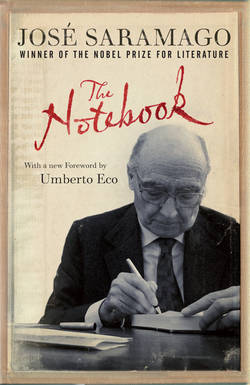Читать книгу The Notebook - José Saramago - Страница 44
На сайте Литреса книга снята с продажи.
October 28: Fernando Meirelles & Co.
ОглавлениеThe story of the adaptation of Ensaio sobre a cegueira2 for the cinema has been filled with highs and lows since Fernando Meirelles, in 1997 or thereabouts, asked Luiz Schwarcz, my Brazilian editor, if I might be interested in giving up the rights to it. He received a peremptory negative as a reply: No. However, in the offices of my literary agent in Bad Homburg, Frankfurt, a heavy shower began and lasted for years, a shower of letters, e-mails, telephone calls, messages from every kind of producer from other countries, in particular from the United States, asking the same question. I had them all given the same answer: No. Was this arrogance? No, it wasn’t a question of arrogance; it was just that I wasn’t sure, or even hopeful, that the book would be treated with respect. So the years went by. Then one day two Canadians turned up in Lanzarote, accompanied by my agent; they had come straight from Toronto, and they were hoping to make the film: Niv Fichman, the producer, and Don McKellar, the scriptwriter. They belonged to a new generation, neither of them reminded me of Cecil B. de Mille, and after a frank conversation, without any hidden trapdoors and without any mental reservations, I gave them the job. We still didn’t know who the director would be. More years would have to pass before the day they asked me what I thought of Fernando Meirelles. Having completely forgotten what had happened back in that already distant year of 1997, I replied that I thought well of him. I had seen and liked Cidade de Deus [City of God] and The Constant Gardener, but I still wasn’t associating the name of this director with a real person. . .
And now the upshot of all this is finally with us. It goes by the title Blindness, which it is hoped will make it easier for people on the international circuit to connect it with the book. I saw no reason to dispute this decision. Today in Lisbon this Blindness of mine was presented in images and sounds. The audience was made up of a good number of journalists who I hope will be able to give a good account of it. The preview will be tomorrow. When we were talking about these episodes of recent history, at one point Pilar—the most practical and objective of all the individuals I know—came out with an idea: “As I understand it, the book anticipated the effects of the crisis we are suffering today. Those people desperately running down Wall Street, from bank to bank, before the money runs out are no different from the ones who move, blind, directionless, through the novel and now the film. The difference is that they don’t have a doctor’s wife guiding and protecting them.” Come to think of it, this Andalusian woman may be right.
